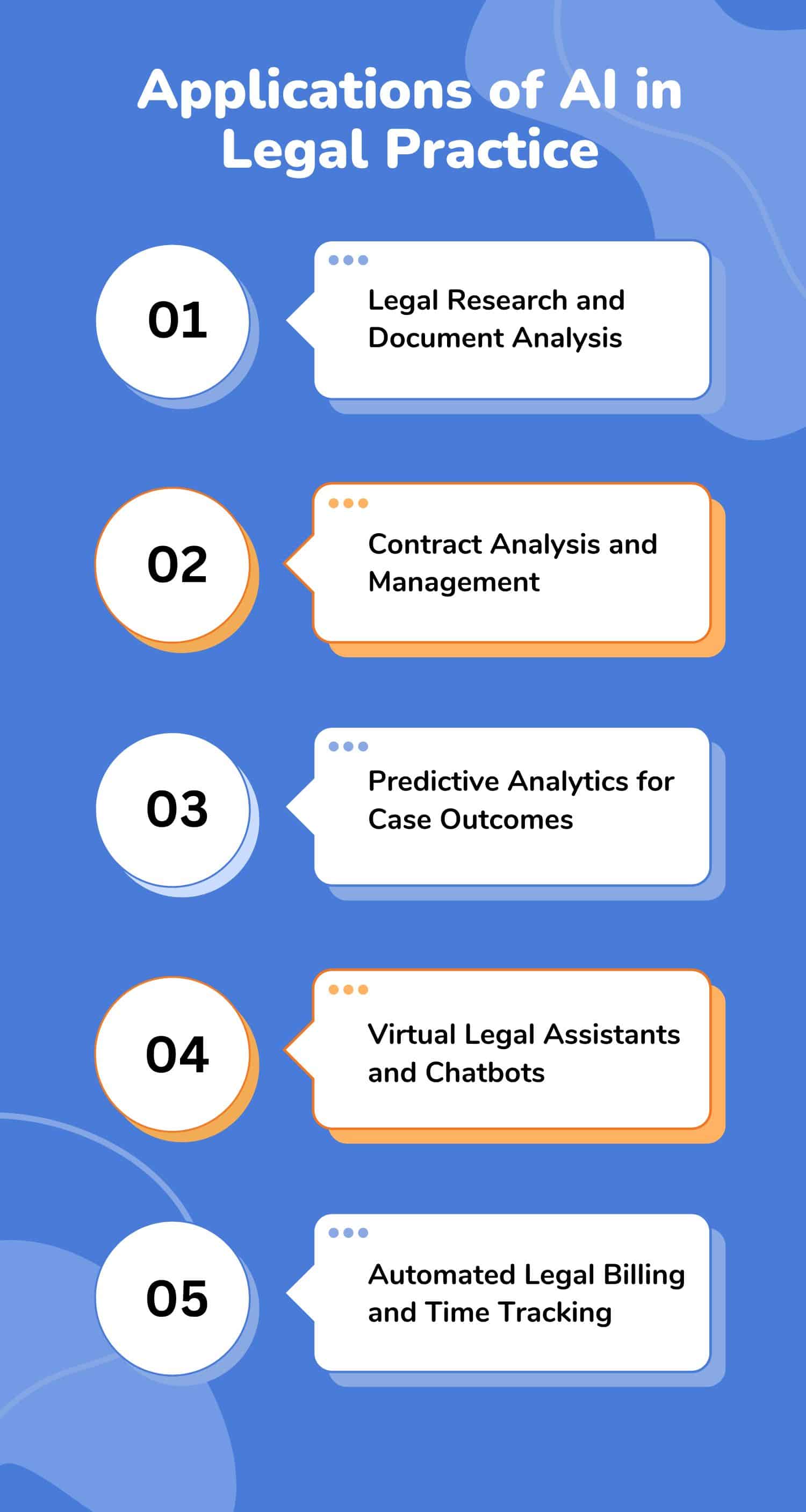AI for Lawyers: Revolutionizing the Legal Landscape
AI for lawyers is like having a tech-savvy assistant to make your legal work easier and more effective.
Importance and Relevance of AI in the Legal Field

Overview of AI Technologies Used in the Legal Industry
Legal professionals use AI-powered systems to simplify legal documents, identify relevant precedents, and summarize complex case law. Additionally, predictive analytics assists lawyers in assessing the potential outcomes of cases and advising clients accordingly. Contract analysis and management software streamline reviewing and drafting contracts, reducing both time and errors.
As AI advances, new technologies are continually emerging to address various legal challenges.
Applications of AI in Legal Practice
1. Legal Research and Document Analysis
2. Contract Analysis and Management
Legal pros can use AI tools to review contracts, spot important clauses, and ensure everything is in compliance. These systems can even suggest contract language based on past data, reducing errors and inconsistencies.
Plus, they streamline the management of contracts, facilitating seamless processes – from creation to renewal.

3. Predictive Analytics for Case Outcomes
This means better-informed decisions and happier clients, as you can set realistic expectations and strategize accordingly.
4. Virtual Legal Assistants and Chatbots
5. Automated Legal Billing and Time Tracking
Benefits of AI for Lawyers
1. Improved Efficiency and Time-Saving
2. Enhanced Accuracy and Reduced Errors
3. Cost-Effectiveness
4. Access to Vast Legal Information
This comprehensive access empowers lawyers to build more substantial cases, make better-informed decisions, and provide more effective legal services to their clients.
5. 24/7 Availability and Client Service
Ethical Considerations in AI for Lawyers
1. Privacy Concerns and Data Security
To maintain trust, ensure your AI systems follow data protection regulations such as GDPR and HIPAA.
2. Bias and Fairness in AI Algorithms
Use diverse and unbiased data when training AI systems and regularly check for fairness.
3. Maintaining Attorney-Client Privilege
This means ensuring that confidential communications and information shared with AI tools are adequately secured and do not inadvertently compromise the attorney-client relationship.
4. Accountability and Transparency in AI Decisions
Legal professionals and AI developers must establish mechanisms to understand, interpret, and explain the reasoning behind AI-generated decisions.
Clients and stakeholders should have transparency into how AI influences legal outcomes and be able to hold responsible parties accountable for any errors or biases.
5. Regulatory Challenges and Compliance
Keep up with the ever-changing legal landscape to ensure your AI use stays ethical and legal.
Challenges and Limitations of AI in Legal Practice

1. Complexity of Legal Reasoning and Human Judgment
AI systems struggle to replicate the depth of legal analysis and the ability of lawyers to assess legal precedents in a holistic manner.
Critical thinking, empathy, and context are hard for AI to replicate.
2. Initial Implementation and Training Costs
These initial costs can be a barrier for smaller law firms or solo practitioners, limiting their access to AI technology.
3. Resistance to Technology Adoption in the Legal Profession
Overcoming this resistance and fostering a culture of innovation can be challenging but crucial for realizing AI’s full potential in legal practice.
4. Legal Liability for AI-Generated Errors
Determining responsibility and accountability when AI systems make mistakes or produce biased outcomes is a complex legal issue requiring legislation and case law clarification.
Ensuring that legal professionals are protected from unwarranted liability while holding AI accountable for errors is a delicate balance.
5. Evolving AI Technology and Continuous Learning
This need for ongoing education and adaptation presents a challenge, requiring a commitment to lifelong learning and professional development.
Future Trends in AI for Lawyers
1. Advancements in Natural Language Processing (NLP)
2. AI-Powered Virtual Courtrooms and Dispute Resolution
AI can facilitate online hearings, automate courtroom administrative tasks, and even assist in resolving disputes through predictive analytics and mediation. These developments can potentially make legal proceedings more efficient, cost-effective, and accessible.
3. Collaboration Between AI and Human Lawyers
AI won’t replace you as a lawyer but will be a powerful tool that helps you. You will use AI to analyze data, conduct research, and automate tasks, improving your legal services.

4. Integration with Blockchain and Smart Contracts
AI can play a crucial role in automating the execution and enforcement of smart contracts, as well as in ensuring compliance with regulatory frameworks.
Integration with blockchain and smart contract technology will likely be a significant trend in the intersection of AI and law.
5. Potential Impact on the Legal Job Market
While AI can automate routine tasks, it also creates new roles and opportunities in areas like AI development, data analysis, and AI ethics. The legal job market may undergo a shift, with legal professionals needing to adapt their skill sets to work effectively alongside AI.
It is essential for legal professionals to stay attuned to these changes and invest in the skills required to thrive in an AI-augmented legal landscape.
Conclusion
So, don’t shy away from AI—embrace it! Learn about it, network with tech communities, and stay on top of the evolving legal landscape. With AI by your side, you’ll provide better legal services and thrive in the tech-savvy legal world.
FAQ (Frequently Asked Questions)
1. Which AI is Best for Law?
2. Will AI Replace Patent Lawyers?
3. Which Professions Will AI Replace?
Instead, AI will augment and enhance the capabilities of professionals in fields like law, healthcare, finance, and more.
Professions that involve complex decision-making, creativity, and human interaction are less likely to be fully replaced.
4. Can I Use ChatGPT to Write a Patent?
Patent attorneys or agents with domain-specific knowledge are better equipped to draft and file patent applications to ensure legal compliance and intellectual property protection.
5. Is Artificial Intelligence a Threat to Lawyers?
Legal professionals who embrace AI and adapt to its integration will likely thrive in the evolving legal landscape.
